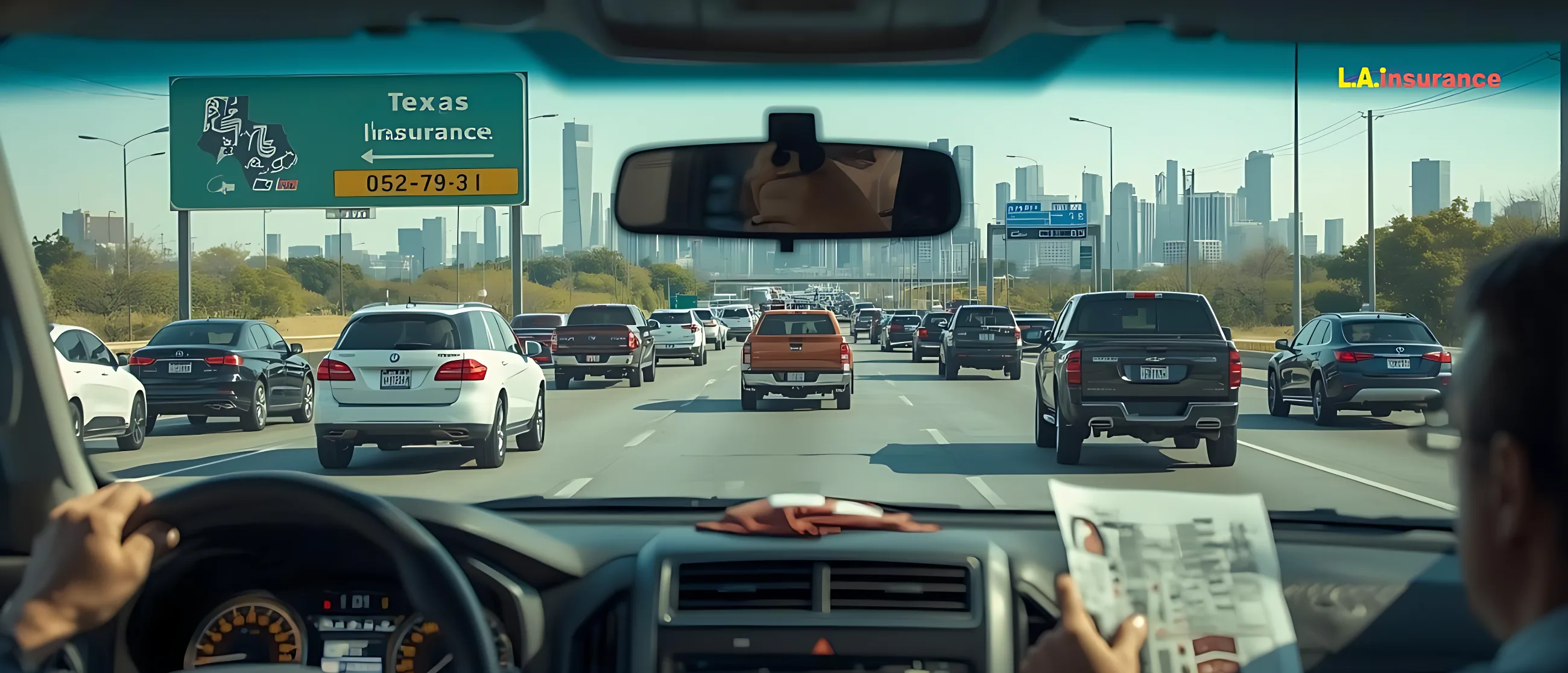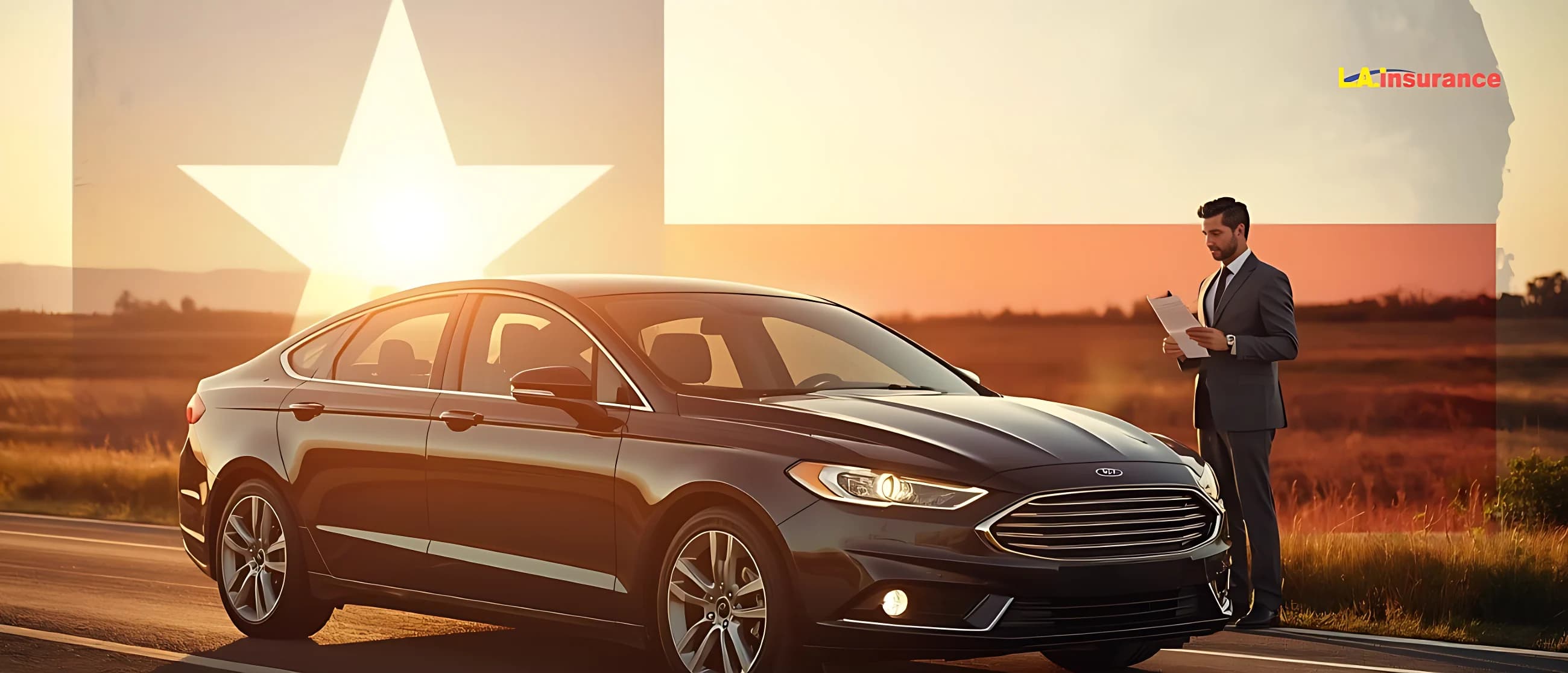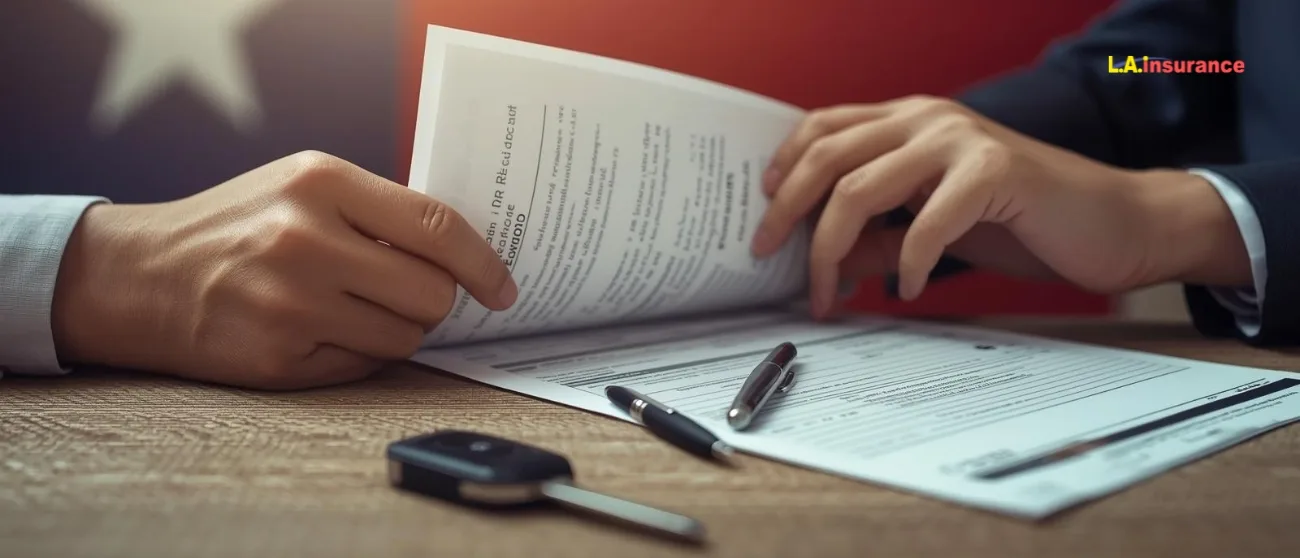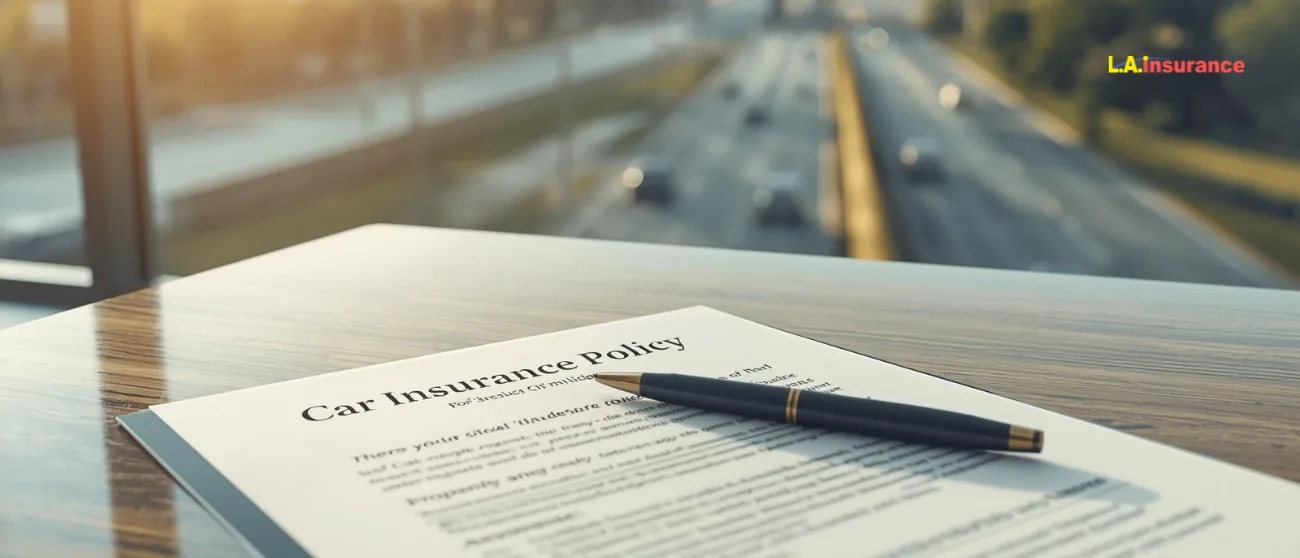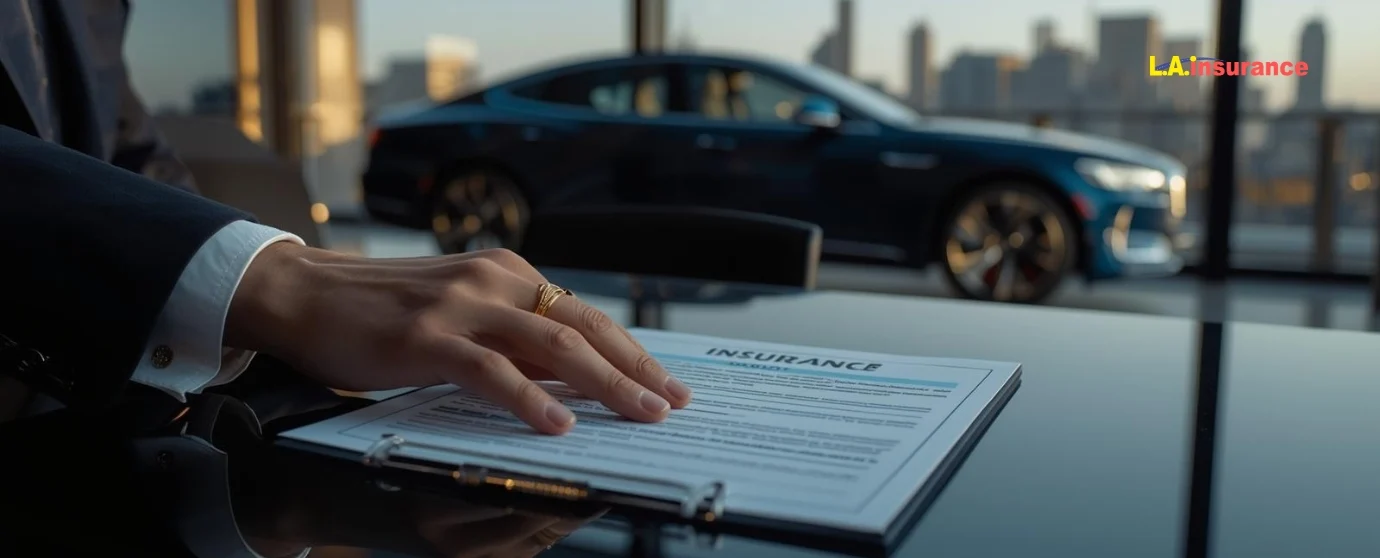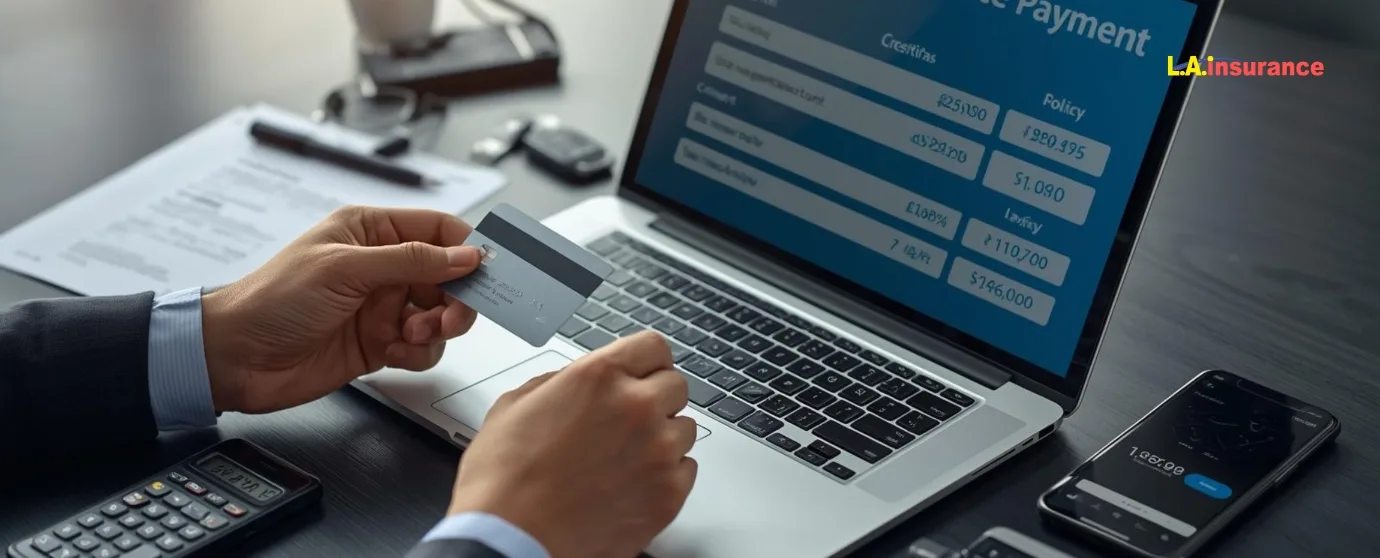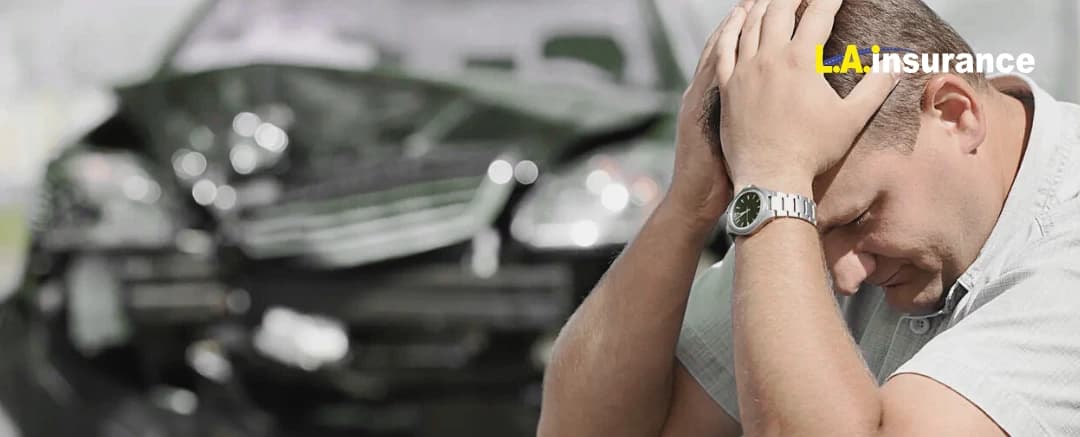
Publish Date: 29-03-2025
Auto Insurance
Last Updated: 17-12-2025
What Happens If You Don't Have Car Insurance
Driving without insurance is risky. It can lead to fines, vehicle impoundment, license suspension, and even jail time. Worse, an accident without insurance could leave you paying massive medical bills, and property damage out of pocket.
This article covers everything including state laws, liability coverage, lawsuits, and financial responsibility. So, if you’re wondering what really happens when you drive without insurance, keep reading.
Is Car Insurance Legally Required in Every State?
In most states, car insurance isn’t optional which means if you drive a car, insurance is required by law. Nearly every state enforces minimum coverage to protect against property damage, bodily injury, and medical expenses. However, a few states do things differently.
New Hampshire, for example, doesn’t mandate auto insurance coverage, but drivers must prove financial responsibility if they cause an accident. Virginia also allows drivers to skip insurance by paying an uninsured motorist fee, but that doesn’t cover damages.
No matter where you live, there’s no way you can get away with car insurance. In fact, 49 out of 50 states require some sort of liability insurance coverage.
Learn More: When did auto insurance become mandatory?
If you need minimum coverage car insurance from the most affordable insurance agency at a price you never thought possible, contact L.A. Insurance today!
What Happens If You Don’t Have Car Insurance?
Minimum liability auto insurance is mandatory. Yet 14 percent or one in seven drivers nationwide is uninsured, according to the Insurance Research Council (IRC, 2022). And if you’re one of them, you’ll face penalties— it’s as simple as that. In fact, sometimes driving without auto insurance coverage can result in serious legal liability. Although the exact punishment depends on state laws, here are the most common consequences for uninsured drivers:
1. Fines and Penalties
Most states charge hefty fees for uninsured drivers. For the first offense, fines can range from $100 to $1,000. But it can go up to $5,000 in some states.
For example, in California, first-time offenders face a $100 to $200 fine, but repeat offenses can reach $500 plus penalty assessment. In Michigan, driving without insurance is a misdemeanor which could cost you a fine between $200 and $500. Some states, like Virginia, require uninsured drivers to pay an annual $500 uninsured motorist fee.
However, penalties don’t stop there! Some states even add a civil penalty for each day you drive without insurance.
2. Vehicle Impoundment
If you’re pulled over as an uninsured driver, police may impound your vehicle. To get it back, you must provide proof of insurance, and pay towing fees, storage expenses, and impound fees.
For example, in Illinois, the Vehicle can be impounded until you show proof of insurance and pay a $1,000 fine along with town fees, storage fees, and impound fees. In Texas, towing and impound fees can exceed $300, and daily storage costs make it even more expensive.
3. License Suspension
If you get caught without insurance, it could lead to an immediate license suspension. In some states, like New York, your license can be suspended for one year if you’re caught driving uninsured.
You might have to pay reinstating fees as well as proof of insurance to get back your license. For example, in Florida, reinstating a suspended license requires showing proof of insurance policy and paying between $150 and $500, depending on how many times you’ve been caught.
Things can get worse if you cause an accident without insurance. Some states won’t reinstate your license until you cover all damages.
If your license is suspended, learn about whether can you get auto insurance with a suspended license.
4. Jail Time
One of the worst things that can happen to you for driving without insurance is the possibility of jail time, especially for repeat offenses or causing a serious accident. In Michigan, uninsured drivers can face up to one year in jail. Some states, such as Alaska, impose 90 days of jail time for a first offense and up to one year for repeat offenders.
Besides, if you’re caught driving uninsured after a serious auto accident, you could end up facing criminal charges, especially if bodily injury and property damage occur.
The Requirement to File an SR-22
In many states, if you drive uninsured and get caught, you might need to file an SR-22 to regain the license. An SR-22 isn’t insurance itself. It’s a document that proves you have a minimum amount of auto insurance coverage required by state laws.
For example, in Texas, an SR-22 is mandatory for two years if your license is suspended due to an accident without insurance. In Florida, you might need an SR-22 or FR-44 (In case of severe traffic violations like driving under the influence) for up to three years.
Sadly, the requirement of SR-22 indicates you’re a high-risk driver. That’s why insurance companies are more likely to significantly raise your premiums. In the worst-case scenario, some insurers even refuse to cover a driver with an SR-22 form. Consequently, this makes it harder and more expensive to get insurance coverage.
Fortunately, SR-22 isn’t required for you if you live in any of the following states:
- New York
- Delaware
- Kentucky
- Minnesota
- New Mexico
- North Carolina
- Oklahoma
- Pennsylvania
Learn More: Can I Get Car Insurance Without a License?
Higher Future Costs
Once you're caught without insurance, expect your insurance premiums to skyrocket. Many car insurance companies consider uninsured drivers high-risk, as we discussed regarding SR-22 insurance. Besides, insurance companies charge higher due to coverage lapse as well.
If you get into crashes, drive under the influence, commit speeding violations, and get pulled over and are found without auto insurance, you'll not only face fines, penalties, and a revoked or suspended license but also much more expensive car insurance rates.
This happens because your driving history affects your car insurance rates. Even if you don't have insurance, each violation you commit stays on your driving record, which insurers later consider when setting your rates. In such a case, learning how to lower car insurance costs could help you afford your insurance.
Learn More: What Happens If You Drive Without a License?
Consequences of Driving Without Insurance: State-by-State Penalties
Each state has its own penalties for driving without insurance. Some states impose steep fines, while others may suspend your license or impound your vehicle. A few states require an SR-22 filing, which can increase future insurance premiums.
Some states may use electronic verification to track auto insurance coverage. If your insurance policy lapses, you may face penalties even without being pulled over. States like California, Florida, and Texas actively monitor coverage and issue fines automatically.
Here’s a table showing a state-by-state penalties for driving without insurance:
State | Fine Amount | License Suspension | Vehicle Impoundment | SR-22 Required |
Alabama | $500–$1,000 | Yes, 6 months | Possible | Yes |
Alaska | $500 | Yes, 90 days to 1 year | Possible | Yes, 3 years |
Arizona | $500–$1,000 | Yes, 3 to 12 months | Possible | Yes, 2 years |
Arkansas | $50–$1,000 | Yes, until proof provided | Possible | Yes, 3 years |
California | $100–$500 | No | Possible | Yes, 3 years if in accident |
Colorado | $500–$1,000 | Yes, 4 to 8 months | Possible | Yes, 3 years |
Connecticut | $100–$1,000 | Yes, 1 to 6 months | Possible | Yes, 3 years |
Delaware | $1,500–$4,000 | Yes, 6 months | Possible | Yes |
District of Columbia | $500–$2,500 | Yes, 30 to 60 days | Possible | Yes, 3 years |
Florida | $150–$500 | Yes, until proof provided | Possible | Yes, 3 years |
Georgia | $200–$1,000 | Yes, 60 to 90 days | Possible | Yes, 3 years |
Hawaii | $500–$5,000 | Yes, 3 months to 1 year | Possible | Yes, 3 years |
Idaho | $75–$1,000 | Yes, until proof provided | Possible | Yes, 1 to 3 years |
Illinois | $500–$1,000 | Yes, 3 to 4 months | Possible | Yes, 3 years |
Indiana | $250–$1,000 | Yes, varies | Possible | Yes |
Iowa | $250 | Yes, until proof provided | Possible | Yes |
Kansas | $300–$2,500 | Yes, until proof provided | Possible | Yes |
Kentucky | $500–$1,000 | Yes, 1 year | Possible | Yes |
Louisiana | $500–$1,000 | Yes, until proof provided | Possible | Yes |
Maine | $100–$500 | Yes, 30 days | Possible | Yes |
Maryland | $1,000–$2,500 | Yes, until proof provided | Possible | Yes |
Massachusetts | $500–$5,000 | Yes, 60 days to 1 year | Possible | Yes |
Michigan | $200–$500 | Yes, 30 days | Possible | Yes |
Minnesota | $200–$1,000 | Yes, until proof provided | Possible | Yes |
Mississippi | $500–$1,000 | Yes, 1 year | Possible | Yes |
Missouri | $500 | Yes, until proof provided | Possible | Yes |
Montana | $250–$500 | Yes, 90 days | Possible | Yes |
Nebraska | $100 | Yes, until proof provided | Possible | Yes |
Nevada | $250–$1,000 | Yes, 30 days | Possible | Yes |
New Hampshire | N/A | N/A | N/A | N/A |
New Jersey | $300–$1,000 | Yes, until proof provided | Possible | Yes |
New Mexico | Up to $300 | Yes, up to 90 days | Possible | Yes |
New York | $150–$1,500 | Yes, varies | Possible | Yes |
North Carolina | $50–$150 | Yes, 30 days | Possible | Yes |
North Dakota | $150–$5,000 | Yes, until proof provided | Possible | Yes, 1 year |
Ohio | $160–$660 | Yes, up to 2 years | Possible | Yes, 3 to 5 years |
Oklahoma | Up to $250 | Yes, until proof provided | Possible | Yes |
Oregon | $130–$1,000 | Yes, until proof provided | Possible | Yes, 3 years |
Pennsylvania | $300 | Yes, 3 months | Possible | Yes |
Rhode Island | $100–$500 | Yes, 3 to 6 months | Possible | Yes |
South Carolina | $100–$200 | Yes, until proof provided | Possible | Yes, 3 years |
South Dakota | Up to $500 | Yes, up to 1 year | Possible | Yes, 3 years |
Tennessee | Up to $300 | Yes, until proof provided | Possible | Yes, 3 years |
Texas | $175–$1,000 | Yes, up to 2 years | Possible | Yes, 2 years |
Utah | $400–$1,000 | Yes, until proof provided | Possible | Yes, 3 years |
Vermont | $250–$500 | Yes, until proof provided | Possible | Yes, 3 years |
Virginia | Up to $500 | Yes, until proof provided | Possible | Yes, 3 years |
Washington | $550 | Yes, up to 3 Years | Possible | Yes, 3 years |
West Virginia | $200 to $5,000 | Yes, 30 days, 90 days (2nd offense) | Possible | 2-3 years |
Wisconsin | Up to $500, for fraudulent proof of insurance up to $5,000 | Yes, until SR-22 filed | Possible | 3 years |
Wyoming | $500 to $1,500 | Yes, up to 6 Months | Yes | 3 years |
*Please note that this information may change over time. Check the official DMV website for each state.
What Happens If You Get into an Accident Without Car Insurance?
An accident without insurance is a serious offense no matter who is responsible for it. Even if the other driver is responsible for the accident, you might have to pay your own bills including medical expenses and property damages.
Let’s say, you live in the at-fault state and cause an accident where you’re at fault with no minimum insurance coverage. In this case, you’ll be liable for paying all the damages caused by the crash for both parties. Besides, you will be always at risk of getting sued by the other driver as you’re uninsured which could lead to wage garnishment and asset seizure. In contrast, if the other driver is at fault, you might be able to sue them, but this could be difficult depending on your state laws and the severity of the injuries.
However, if you live in a no-fault state, it requires you to carry personal injury protection (PIP), which covers your own medical costs regardless of fault. In this case, if you don’t have insurance and get involved in a crash, you must cover your own medical expenses. If the accident is reported to the police, the authorities may charge extra fines and penalties for driving without insurance. Besides, if the injury is severe, the other driver can file a lawsuit against you for pain and suffering.
If you don’t have the minimum liability insurance coverage and you get into an accident where the other driver is at fault, you may have trouble getting compensation for your injuries. This is particularly possible in states with “NO Pay, No Play” laws, like Louisiana and California.
Please note that regardless of the system, at-fault or no-fault, driving without insurance means you risk lawsuits, medical debt, and severe financial hardship after an accident.
Learn More: How Much Does Car Insurance Go Up After an Accident?
What Are the Alternatives to Driving Without Insurance?
If you don’t have car insurance, you’re exposing yourself to serious financial risk. But if you’re struggling to afford auto insurance coverage, there are alternatives that can help keep you protected.
- Even if you don’t own a vehicle, you can still get liability coverage through a non-owner car insurance policy. This covers bodily injury, property damage, and personal injury protection. Consider this coverage if you drive someone else’s vehicle.
- Instead of risking an accident without insurance, use public transportation (e.g., buses, trains, subways) or rideshare apps like Uber and Lyft.
- If a friend or family member allows you to use their vehicle under “permissive use”, their insurance policy might cover you. Always confirm before driving. Learn can I get insurance for someone who borrows my car.
- If you can’t afford car insurance, check low-cost insurance programs. Some states offer cheaper car insurance for low-income drivers. California’s Low-Cost Auto Insurance Program provides basic liability coverage at lower rates.
- Post a surety bond or deposit. A few states let drivers post a financial responsibility bond instead of buying insurance coverage. This requires a large cash deposit, usually $30,000 or more, to cover potential damages.
Secure Affordable Car Insurance Today with L.A. Insurance
Accidents happen, and without insurance, you risk financial ruin from medical bills, property damage, and legal liability.
So, don't drive unprotected. Get affordable full-coverage auto insurance today. It includes liability insurance, collision insurance, and comprehensive insurance coverage. Our cheapest car insurance is available in many states in the USA, including Michigan, Florida, Colorado, Nevada, Arizona, and Texas.
Don't be financially fragile while on the road. Protect yourself from accidents, uninsured motorist claims, and lawsuits. Call us at (800) 893-9393, find an agent, and get a cheap car insurance quote right away!
What Will Happen If I Don’t Have Car Insurance: The Bottom Line
Driving without car insurance is a risk not worth taking. Without it, you’ll likely face fines, license suspension, vehicle impoundment, or jail time. Also, an accident without insurance can expose you to a massive financial burden. So, be a responsible driver and get insurance to protect your license and assets. Drive legally, securely, and stress-free!
Read Our Trending Articles:
FAQs About Driving Without Car Insurance
What happens if I crash a new car and I don't have insurance?
You’ll be responsible for all damages. If the car is financed, the lender may demand full payment. Also, if you’re at fault, the other driver can sue you for medical expenses, property damage, and pain and suffering.
What happens if you get pulled over without car insurance?
You may receive fines, license suspension, and an order to show proof of insurance coverage. In some states, your vehicle can be impounded. Furthermore, repeated offenses can lead to higher fines and even jail time.
What happens if you don't have car insurance and get into an accident?
If you're at fault, you'll pay for the other driver’s medical bills and property damage. In a no-fault state, you’ll cover your own medical expenses. Plus, you might not have the right to claim for pain and suffering in some states.
What happens if you don't have car insurance in Michigan?
In Michigan, driving uninsured is a misdemeanor with fines between $200 and $500. Your license will be suspended, and your vehicle can be impounded. If you’re in an accident, you’re barred from suing for pain and suffering and you must cover medical expenses yourself.
Can you be sued if you don’t have insurance?
Yes. If you're at fault in an accident, the other driver can sue you for damages. If not at fault, some states have laws called No Pay, No Play that limit your ability to sue for pain and suffering.
Can you recover damages if you’re hit while uninsured?
It depends on state laws. In an at-fault state, the at-fault driver’s insurance should cover your damages. However, in states with No Pay, No Play laws, you may be restricted from claiming pain and suffering compensation.
What happens if you don't have enough car insurance?
If your liability coverage isn’t enough to cover damages, you must pay the remaining amount from your pocket. The injured party can sue you for medical expenses and property damage that potentially leads to wage garnishment or asset seizure.
How long can you go without car insurance before being penalized?
Penalties vary by state. Some states fine drivers immediately after a policy lapse, while others allow 30 days before issuing penalties. Insurance companies charge higher premiums for coverage gaps.
What happens if you don't have insurance on a financed car?
Lenders require full coverage insurance. If you drop coverage, the lender may force expensive lender-placed insurance on you. Worse, if you crash, you’ll still owe the loan balance even if the vehicle is totaled.
How long can you drive without insurance after buying a car?
Some states allow a grace period of 7 to 30 days to get insurance. However, if you’re pulled over or in an accident, you must show proof of insurance coverage to avoid penalties.
Will I go to jail for driving without insurance?
In most cases, first-time offenders receive fines, license suspension, and vehicle impoundment. However, repeat offenses or driving uninsured after a serious accident can lead to jail time, especially in states like Michigan and Alaska.
Editorial Disclaimer
The information provided on this blog is for general informational purposes only and does not constitute professional insurance, legal, or financial advice. Coverage and rates are subject to individual eligibility, underwriting guidelines, and state availability. For specific questions regarding your policy or to get an accurate quote, please contact a licensed L.A. Insurance agent directly. We're an independent agency and not a direct insurance carrier. For more information on how we operate and handle your data, please see our Terms and Conditions and Privacy Policy.
Tag :
Comercial Auto
Auto insurance
